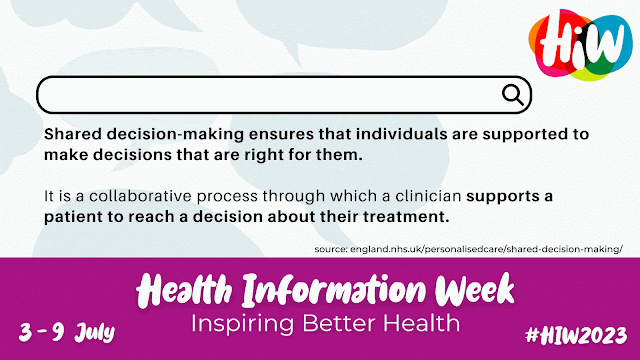This is the last day of Health Information Week and the theme is information for shared decision-making.
What is shared decision making?
Here are
some resources to help you learn more about shared decision-making:
NHS
England guidance: Shared decision making requires skill from health
professionals and most importantly a willingness to involve their patient in
decisions about their care.
Decision
support tools [from NHS England], also called patient decision aids,
support shared decision making by making treatment, care and support options
explicit.
Shared
Decision Making [from the e-lfh) - free to access elearning resource
provides guidance on what shared decision making is and how to implement it in
practice.
NICE
guideline 197 covers how to make a shared decision-making part of everyday
care in all healthcare settings. https://www.nice.org.uk/guidance/ng197
Personalised
care Institute- Decision support tools (also called ‘patient decision
aids’) encourage personalised care by supporting the process of shared decision
making.
Looking on the Internet for resources?
You can
search the Internet for resources to support patients – charities, professional
royal colleges and patient support groups are good sources to check. Remember
to check the quality of the information sources you find. Complete our tutorial
Evaluating
information on the Internet. Use this checklist for a simple and quick
evaluation of information.
Need more help?
Get in touch with the Health Library if you need any help accessing
resources or finding the right information.

Comments
Post a Comment